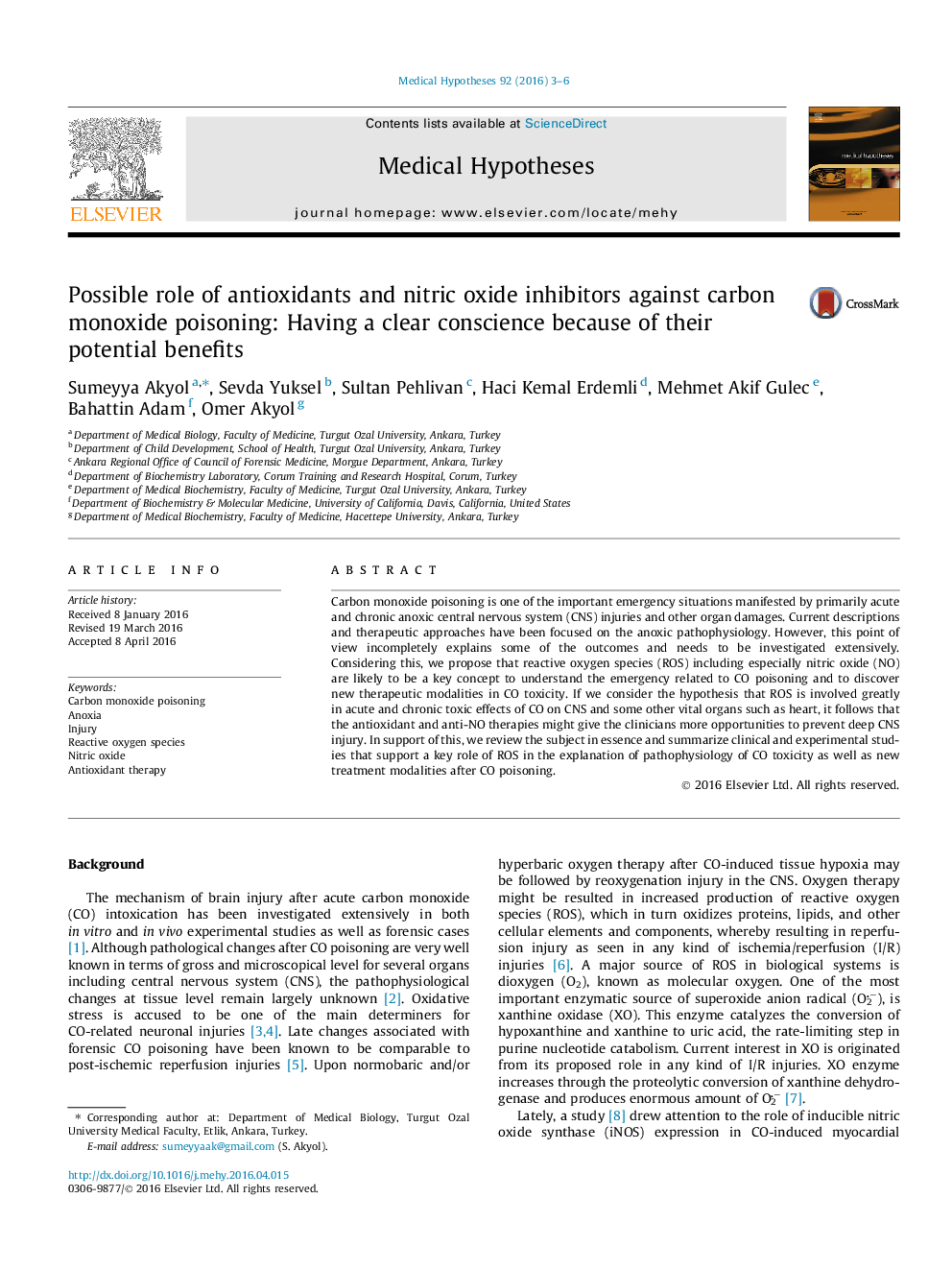| Article ID | Journal | Published Year | Pages | File Type |
|---|---|---|---|---|
| 2488908 | Medical Hypotheses | 2016 | 4 Pages |
Carbon monoxide poisoning is one of the important emergency situations manifested by primarily acute and chronic anoxic central nervous system (CNS) injuries and other organ damages. Current descriptions and therapeutic approaches have been focused on the anoxic pathophysiology. However, this point of view incompletely explains some of the outcomes and needs to be investigated extensively. Considering this, we propose that reactive oxygen species (ROS) including especially nitric oxide (NO) are likely to be a key concept to understand the emergency related to CO poisoning and to discover new therapeutic modalities in CO toxicity. If we consider the hypothesis that ROS is involved greatly in acute and chronic toxic effects of CO on CNS and some other vital organs such as heart, it follows that the antioxidant and anti-NO therapies might give the clinicians more opportunities to prevent deep CNS injury. In support of this, we review the subject in essence and summarize clinical and experimental studies that support a key role of ROS in the explanation of pathophysiology of CO toxicity as well as new treatment modalities after CO poisoning.
